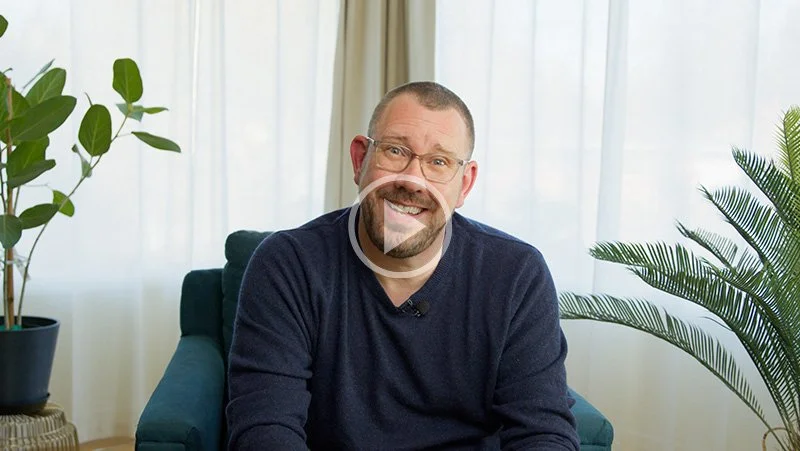The 6 Dos and Don'ts of Conflict
Welcome to the #culturedrop. Every Tuesday, Galen Emanuele emails tools to advance leadership skills, team culture, and personal growth. No spam, just great content. Sign up now to get it in your inbox.
Dealing with, navigating, and resolving conflict in the workplace and in your life is such a critical topic and important skill set. If everybody were fantastic at resolving conflict, the world would be a better and easier place.
But they’re not, so here we go. Here are six do’s and don’ts to help you level up your ability to move through and resolve conflict in a more productive and effective way.
#1: Do not attempt to resolve conflict when you are emotionally triggered.
That means when you’re turned up to 10, or in the heat of the moment when you’re triggered and upset.
That is not the time to try to resolve conflict and have a calm conversation.
It is so much easier to resolve conflict when people can be calm and neutral and “in cold blood,” which just means at a time when you are not completely triggered and emotions are out of control.
Do set up a time when the two of you can sit down and have a conversation.
There’s nothing wrong with taking a breather or asking for some time to cool off before continuing the conversation if you need it. Asking for permission from the other person to enter into the conversation is also a good idea to create a better space to talk, instead of springing it on them unexpectedly.
When you know that there’s a conversation that you need to have with someone, either go to them and ask, “Hey, is now a good time, to have this conversation with you,” or set up a time when the two of you can talk through things calmly, in a neutral space.
Check out this video (3 mins) for some tips and language on how to start and enter into challenging conversations.
#2: Don’t treat your assumptions as true.
Your interpretation of other people’s behaviors or their feelings or their perspective is just that: it’s your perception, it’s not reality.
Don’t act like your assumptions are true.
Do communicate your assumptions and your beliefs and perception of their experience.
“Don’t treat your assumptions as gospel.”
It is totally okay to say, “An assumption that I am making is that you did that because of (this feeling, or intention, etc). Is that accurate, can you clarify things for me so I can understand where you’re coming from?”
Or something that Brené Brown says that I really love is “The story that I’m telling myself is this,” and frame it up to say, “I don’t know that this is true, but this is my assumption about how you feel or what is going on for you, can you clear that up for me, can you tell me what is actually going on for you?”
You will have assumptions, yes, but communicate them and don’t treat them like they’re gospel because they’re not, you don’t know. Come into the conversation asking questions to clarify, not like you already know what’s true.
#3: Don’t accuse people, or label them as being a certain thing or being a certain way.
“When we label someone else and tell them how they are, all it does is put that person on the defensive.”
When you come in labeling someone and telling them how they are, like, “You never listen to me, you’re not a good listener, or you’re rude, you shoot down all my ideas, you’re not a very good friend, etc.” it doesn’t help.
When we label someone else and tell them how they are, all it does is put that person on the defensive.
It devolves into an argument about whether that person is a good listener or not etc, and it just makes people feel attacked. When people feel attacked they put on armor and stop listening, putting all their energy into defending themselves.
Using that kind of language only makes things worse.
Do frame up your language and the conversation in terms of focusing on the experience that you’re having, your own feelings and observations.
So instead of saying “You never listen to me.” reframe your language to say, “The experience that I’m having is that I don’t feel listened to.”
“When we frame up language like that, it puts people in a less defensive space.”
It’s really important to do that because your experience is not something that can be argued. That person can’t respond by saying, “Yes you do,” because it’s your experience and it’s true for you. Now the conversation isn’t focused on whether or not they actually listen, it’s centered around the impact they are having on you.
So whether or not they are a “good listener” has no relevance here, and it’s not up for debate. When we frame up language like that, it puts people in a less defensive space and it creates an opportunity to explore the experience that you are having without directly accusing them of anything.
Conflict becomes much more productive when you learn to use language like, “These are the observations that I’m having, these are the feelings that I’m experiencing that I understand belong to me. Can we talk through that together and explore what’s happening for both of us, so we can get to the heart of why?”
#4: Do not believe that you own 100% of the truth (you don’t).
I love this one.
Your perspective, your feelings, your view of what’s right and what’s wrong, and what’s happening are not cosmically true. If you go into a situation of conflict where you assume that you are the ultimate judge of what’s right, what’s wrong, and that your perspective is correct, you will not be able to effectively resolve conflict with other people.
Do listen and be curious.
“Your perspective, your feelings, your view of what’s right and what’s wrong, and what’s happening are not cosmically true.”
This is really important, ask questions, seek to understand.
Ask for that person’s perspective, their point of view, demonstrate empathy, put yourself in that person’s shoes whether you agree with what they have to say or not. Their experience is true for them, try to see it from their perspective which is possible when you come from a place of just listening and wanting to understand.
Discover what’s true for both of you, and use that as a basis to find common ground and move forward toward a solution.
#5: Don’t treat people how you feel.
And what I mean by that is the difference between a feeling and a behavior:
- To be angry or to be frustrated by somebody else is a feeling.
- To yell, to throw something, to use abusive language towards somebody else, those are behaviors.
You have to remain in control of your emotional behavior. At any given moment you don’t get to choose your feelings, but the words that come out of your mouth, your body language and physical behavior, facial expressions, tone of voice, your energy level, and how you treat other people, are all things that you are 100% in control of.
Do remain in control of your behavior and how you treat the other person.
It is possible to be absolutely livid and also speak calmly in a neutral way to somebody else.
It’s okay to express, “I’m incredibly frustrated, I’m very, very angry about this, let’s talk through this.”
I know that’s very hard to do, it takes a lot of emotional intelligence and practice to remain in control of your emotional behavior, but it’s so important in order to navigate conflict effectively.
#6: Do not believe that you are great at resolving conflict.
“Nobody is born great at resolving conflict.”
Unless you have received extensive training and you’ve practiced and you’ve read books and you’ve actually done a lot of work to be better at resolving conflict, you’re probably not very good at it.
Nobody is born great at being able to resolve conflict.
Do learn & educate yourself.
Read books, get training, watch videos, and practice what you learn so that you get better and better at it. You can become great at moving through conflict, it is a skill set, it’s not an inherent trait of anybody.
“Fierce Conversations” by Susan Scott is a great book and resource that I recommend often. It will help you in how to resolve conflict with other people and provide some tools for professional and personal relationships.
Lastly, real talk:
The last thing I want to say: go to counseling.
A lot of your personal triggers and things that cause you to be angry and to have conflict with other people stem from all the messed up things that you experienced growing up; in school, or that your parents and the rest of your family did to you. Life is hard, people are complicated, you cannot get to adulthood without receiving a lot of damage along the way.
“Understanding yourself and working on you goes a long way to being able to resolve conflict with other people in your life in a healthy way.”
There are things that make you very angry or frustrated or that trigger you in a huge way that do not belong to other people; the people at work that trigger those things in you, your friends, your romantic partners, etc.
Noticing and reflecting about the things that really push your buttons is a really healthy process. It’s very helpful to know yourself and understand why, for example, it causes you to feel so heated or angry if somebody shoots down your idea, or you feel like they’re telling you what to do.
We all have a lot of work to do on ourselves to be better, more healthy communicators and well rounded humans. You are no exception. Understanding yourself and working on you goes a long way to being able to resolve conflict with other people in your life in a healthy way.
Want more?
This article was created by Galen Emanuele for the #culturedrop. Free leadership and team culture content in less than 5 minutes a week. Check out the rest of this month's content and subscribe to the Culture Drop at https://bit.ly/culturedrop







